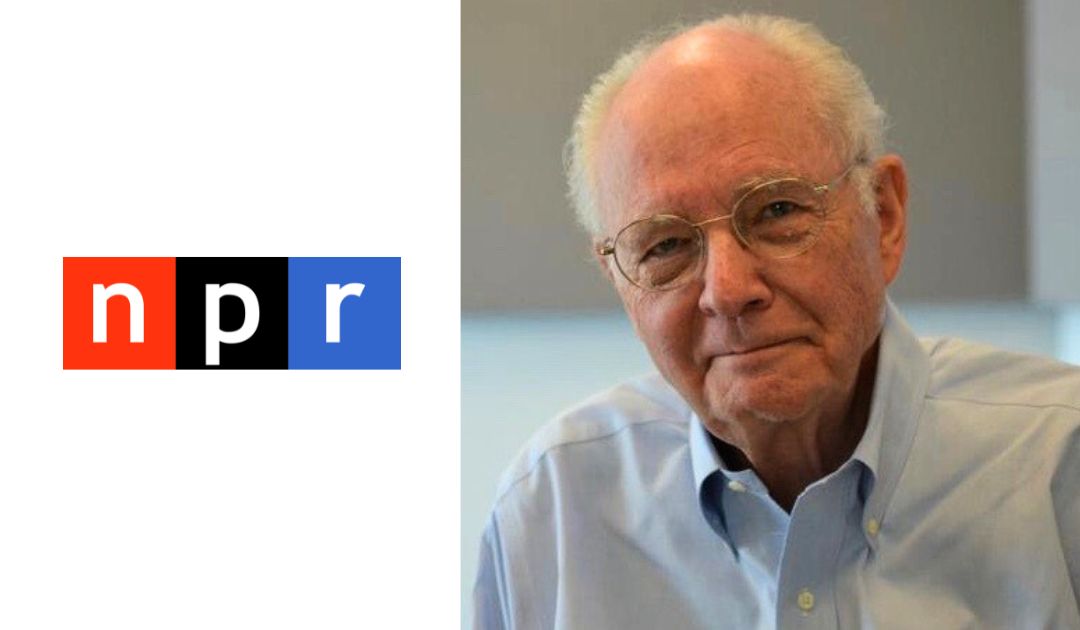Bill Siemering, 91, a Wyndmoor resident and a longtime National Public Radio (NPR) icon, was featured last week by The New York Times in an article titled “A founding father of NPR worries about its fate“.
Siemering was a member of the founding board of NPR, served as its first director of programming, and authored its mission statement, “National Public Radio Purposes,” more than 50 years ago. He also co-founded its flagship show “All Things Considered” and created the program that would eventually become “Fresh Air.”
He was inducted into the Radio Hall of Fame in 2021.
The interview centers around a Trump administration rescission request, which is a proposal to reduce public media’s annual funding by more than $500 million, The Times said. According to an NPR article published on Friday, July 18, the House voted on Thursday 216-to-213 in favor of a plan to rescind $1.1 billion in funding for the Corporation for Public Broadcasting (CPB) which cuts all federal support for NPR, PBS and their member stations.
An excerpt:
The House vote on Thursday means CPB will lose $1.1 billion meant to fund it through the next two years, while the bill also cuts $7.9 billion in other programs. CPB acts as a conduit for federal money to NPR, PBS and their member stations. Although NPR, which produces news programs such as Morning Edition and All Things Considered, relies on direct federal funds for only a small portion of its budget, its approximately 1,000 member stations get a heftier portion of their operating revenue through CPB.
An excerpt from The Times’ interview with Siemering:
Q: Over the decades, public media has defended itself many times from defunding attempts using the values, principles and vision that you helped establish. It feels now that defense is faltering. I’m wondering what you think has changed.
A: The divisive culture that no longer values inclusion and diversity, for one. Facts and science are ignored, and topics like the warming climate are not acceptable to talk about. They think of that as having a leftist orientation.
In the purposes statement, I wrote that public radio would “regard individual differences with respect and joy rather than derision and hate,” and that it would “increase the pleasure of living in a pluralistic society and result in a service to listeners which makes them more responsive, informed human beings.” Those are core values that are not now appreciated.
Q: Your professional life may be bookended by the creation of and the defunding of public radio as we know it. How do you feel about that?
A: I don’t think it’s a negation of what I set out. I still believe those basic purposes endure.
The 55 years that public radio has been operating is a testimony to the wonder of it — the creativity of the people that have made a remarkable contribution to American culture.
Independent producers, station producers, network producers and the staff all contribute to making this what it is. I wrote some purposes, but all these people make those purposes come alive. They make the music.
For all the latest news, follow us on Facebook or sign up for Glenside Local’s “Daily Buzz” newsletter here.
Photo: Wikipedia

